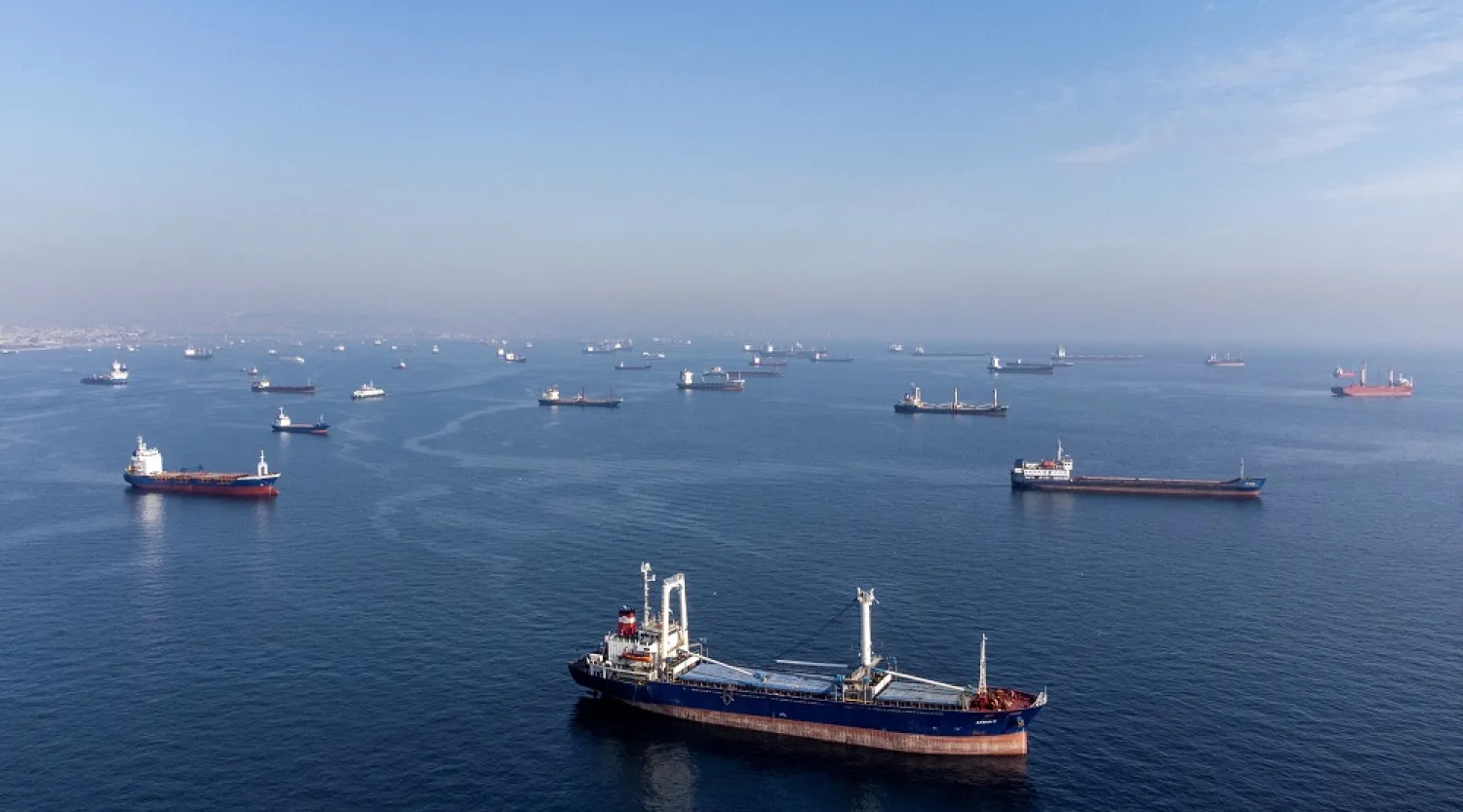Ships loaded with grain departed Ukraine on Tuesday despite Russia suspending its participation in a UN-brokered deal that ensures safe wartime passage of critical food supplies. But future shipments were in doubt after the United Nations said vessels would not move Wednesday.
Three ships carrying 84,490 metric tons of corn, wheat and sunflower meal left through a humanitarian sea corridor set up in July, the UN said. The corridor, brokered by Türkiye and UN, was seen as a breakthrough that would ensure parts of the world struggling with hunger would receive grain and other food from the Black Sea region during Russia's war in Ukraine.
Russia cited allegations of a Ukrainian drone attack against its Black Sea fleet in announcing over the weekend that it was suspending its part in the grain deal. The Russian Defense Ministry said Monday that ship traffic from ports in southern Ukraine was halted, calling the movement "unacceptable."
But a total of 14 ships sailed that day, including one chartered by the UN World Food Program to bring wheat to Ethiopia, which along with neighboring Somalia and Kenya, is badly affected by the worst drought in decades. The UN has warned that parts of Somalia are facing famine. Thousands of people have died there.
Despite ships leaving this week, the future of the initiative was uncertain after the UN said it, Ukraine and Türkiye agreed vessels would not travel under the deal on Wednesday.
The three parties had performed required checks without Russia, allowing some shipments to continue, but the UN said those inspections and passages were "a temporary and extraordinary measure."
Russia’s withdrawal from the celebrated grain agreement has drawn outcry from Ukraine, the US and other allies, with Ukraine accusing Russia of creating a world "hunger games."
The UN operation had prioritized a large backlog of ships waiting for checks off Istanbul, said Munro Anderson, head of intelligence of the risk consultancy Dryad Global.
After suspending its participation, "it is likely that Russia will use this as a tool of negotiation to secure what it needs from the deal," Anderson said. "We know that Russia has been looking to export fertilizer products and to seek a sanctions reprieve on those so it can do so effectively."
While Western sanctions on Russia don’t affect its grain exports and a parallel wartime deal was meant to clear the way for Moscow’s food and fertilizer shipments, some businesses have been wary of running afoul of sanctions.
Russian President Vladimir Putin pointed to the fertilizer issue in a call Tuesday with Turkish President Recep Tayyip Erdogan, saying Russia's agricultural exports still were not unblocked.
Putin also said that resuming the grain deal would require an investigation into the attack on Russia's Black Sea fleet, according to a Kremlin readout of the call.
Erdogan told Putin "that if they solve the grain crisis through a constructive approach, they will (also) encourage steps toward a return to negotiations" to end the war in Ukraine, according to the Turkish president’s office.
Analysts say Russia still is bound by the terms of the deal it signed, which include a commitment not to target civilian vessels taking part in the agreement. Such an attack also would violate international law.
"Although it is not currently participating in that deal, it is still a signatory to it. Russia’s interests are not going to be served in any way, shape or form by attacking vessels and groups in the international community," Anderson said.
He added that Russia’s primary concern is likely that vessels might be going unchecked and could be used to bring in weapons. The July agreement established a Joint Coordination Center in Istanbul to coordinate checks between the warring nations, Türkiye and the UN.
Russia has announced plans to conduct its own inspections of ships that have already cleared the joint checks in Istanbul, but further details were not known.









